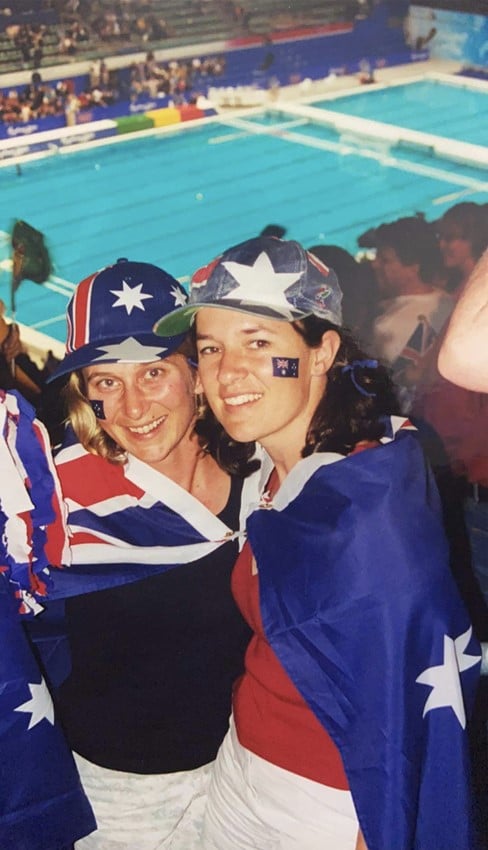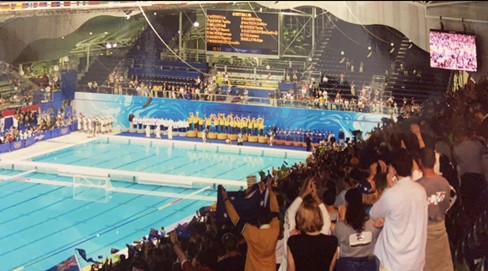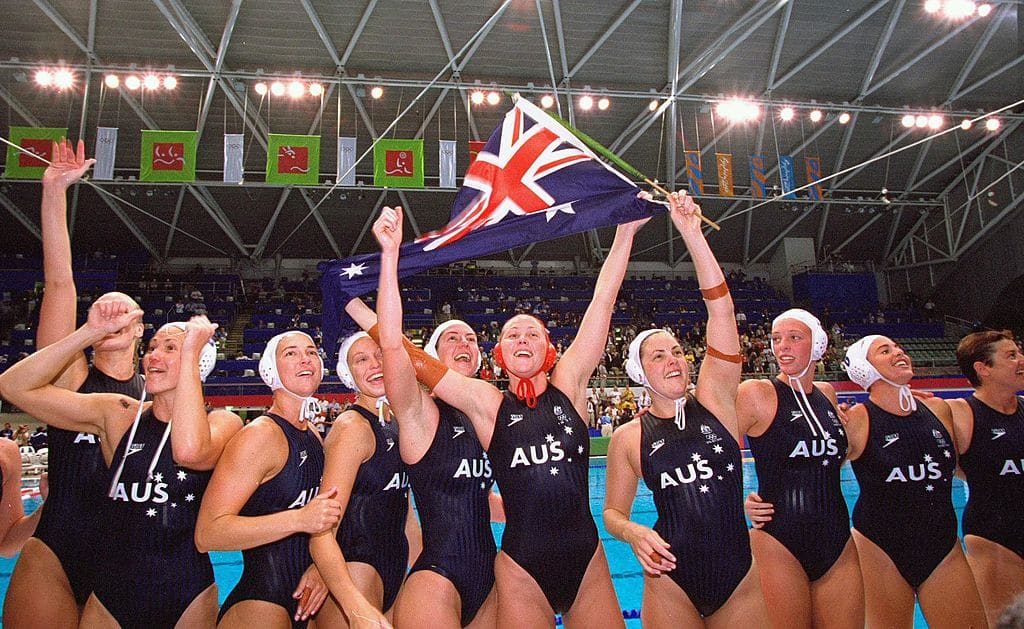It’s the year 2000, and Sydney is hosting the Olympic Games. Cathy Freeman has ignited the cauldron, Marion Jones is earning medals that she would be stripped of just seven years later after admitting to using performance-enhancing drugs, and, perhaps most famously of all, Ian Thorpe, affectionately dubbed the “Thorpedo”, is reigning champion over the Sydney Aquatic Centre.
As all of this was happening, Olympic history was also being made in a lesser known sport, water polo, specifically, in the first ever Olympics Women’s competition.
Men’s water polo has been an Olympic sport since 1900, at the second ever Modern Summer Olympics, but women’s water polo was not to make its debut for another century, at the Sydney Olympics of 2000. It was a hard-won battle to get the sport included, spanning over 20 years and including many fierce protests as players stood up for their sport and argued against its exclusion, especially as there was no valid reason not to have women’s water polo at the Olympics; the excuse used was that it is “women’s synchro [synchronised swimming] and men’s water polo”.
Melissa Byram (nee Mills) of the Australian team explained why this was so wrong. “It’s very apples and oranges, you can’t compare two different sports”.
For female water polo players all over Australia, the inclusion marked one of the most significant events in the history of the sport. For what felt like the first time for many people, women’s water polo was at last being taken seriously.

Then, as a final cherry on top, the Australian team went all the way to the grand final gold medal match against the invincible US team, and in the last 1.3 seconds, managed to come out on top. It was momentous, as Yvette Higgins slammed the ball into the top left of the cage, just skimming past the goal-keeper’s outstretched arms, and the crowd erupted as fans across the country started celebrations. It was a pivotal moment, not just for women’s water polo, but also for modern feminism.
Of the four goals scored by the Australian team in the match, half of them were scored by the team’s two left-handed players, Yvette Higgins and Melissa Byram.
Byram was one of Australia’s key players in vanquishing the US in the grand final, not only winning the swim-offs at the start of each quarter to claim first possession of the ball, but also in scoring Australia’s first goal of the game.
Byram told Canberra Daily she started out as a competitive swimmer before joining her school water polo team at age 13. “We were terrible at school,” she laughed.
Eventually, Byram started dropping swimming sessions and picking up water polo more and more until it became her dominant sport.
When asked about how it felt to score the first goal of the game, Byram said it was “really satisfying” as she hadn’t scored in the semi-final against Russia so she was “determined to score in the final”.
From the edge of the pool, Byram slammed the ball into the corner of the cage, bouncing over the goal-keeper’s arm and evening the score with the Americans who had taken an early lead.
She talked about how excited she was to also “be the first person to touch the ball in the first ever [Olympics] women’s water polo” after sprinting down the pool to claim first possession of the ball for Australia, a massive accomplishment.
“What I liked about water polo is it’s just a really great sports for girls to get into. Some of the best players in the world are tiny, little players, and then there’s also really big, tall, long players; you can be strong and you can be any sort of build to be a great water polo player. That’s really exciting, and it’s great for any girl with any different body type. It’s just a great sport that anyone can play.”
Alicia Hetherington, of the Tuggeranong Vikings, was in the stadium and witnessed the grand final in person. She told Canberra Daily, “The atmosphere in Sydney during the 2000 Olympics was incredible.”
Having grown up in the ACT and in Australian water polo, Hetherington knew many of the players on the national team.
“Seeing players that I had played against, and with, representing Australia was something I am still immensely proud of.”
Hetherington’s highlight of the game was that the noise in the stadium was louder than anything she had ever heard before. There was so much support at the game, as spectators filled up the stands at the pool, and even flocked at the front doors.

The representation of women’s water polo in the Olympics for the first time meant so much to other young players, like Hetherington, and it felt like justice after all of the years of campaigning and protesting for the sport to be included.
“I remember the feeling I had when the final whistle blew like it was yesterday!”
In the history of the sport, it practically was yesterday; water polo originated in the mid to early 19th century. Since that time, the sport has evolved, not only in its rules, but in its diversity of players and its inclusivity.
Twenty-one years after its Olympic debut, the winning Australian women’s team of 2000 are remembered not just as pioneers in water polo, but also for women’s sport itself.
By Caitlin Wallace, Year 10 Erindale College Work Experience Student, and member of Tuggeranong Vikings Water Polo.
Don’t miss the latest Olympic Water Polo as our Aussie Sharks and Stingers take on their fiercest opponents yet: available on 7Mate.
Interested in playing Water Polo for you or your kids? Visit Tuggeranong Vikings Water Polo, Nordek Water Polo, or Gungahlin Dragons Water Polo to find and enrol at your local club.
Get all the latest Canberra news, sport, entertainment, lifestyle, competitions and more delivered straight to your inbox with the Canberra Daily Daily Newsletter. Sign up here.
For more Olympics:



